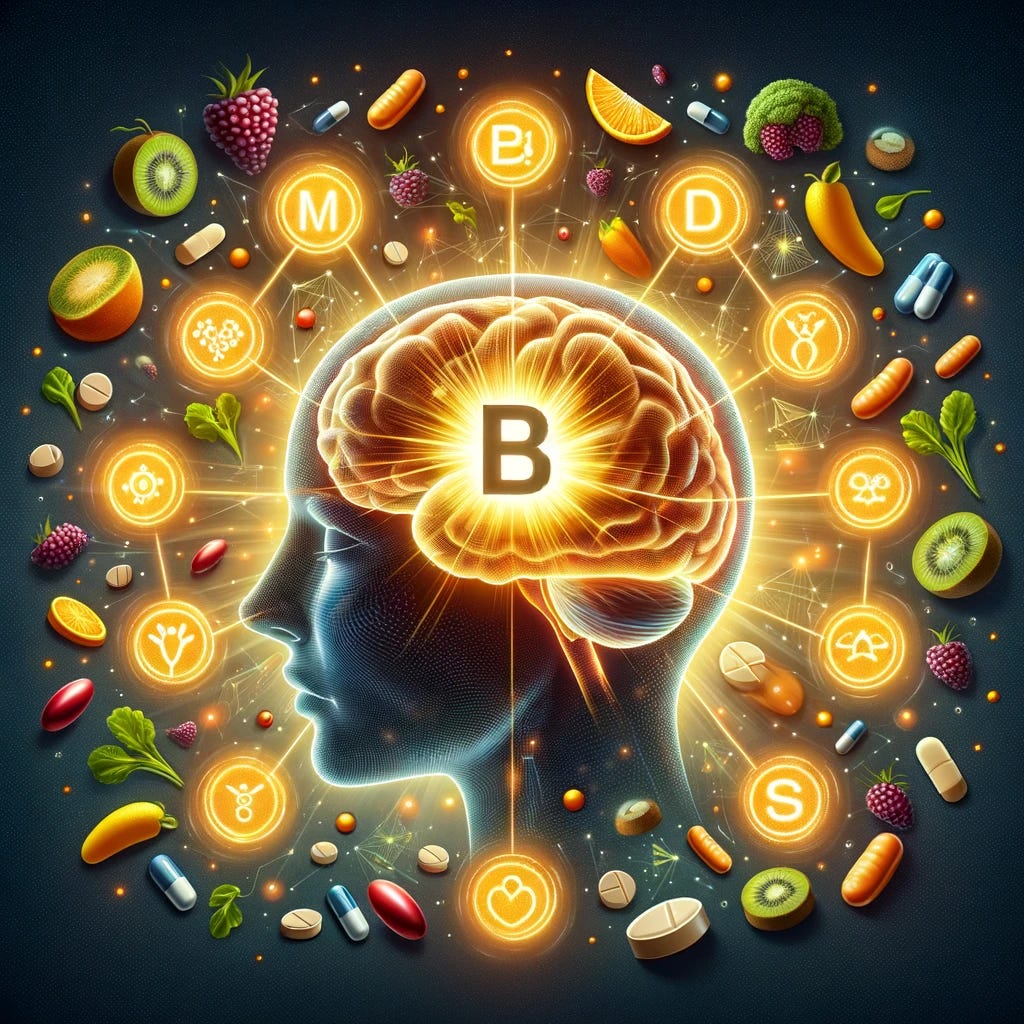A Response to Katarina P’s Article: “Unlocking Brain Health: The Power of B Vitamins in Enhancing Memory and Focus”
A Response to Katarina P’s Article: “Unlocking Brain Health: The Power of B Vitamins in Enhancing Memory and Focus”

Katarina P’s article, “Unlocking Brain Health: The Power of B Vitamins in Enhancing Memory and Focus,” presents compelling evidence on the pivotal role of B vitamins in maintaining and enhancing cognitive functions. For individuals with ADHD, the insights provided could be especially relevant and beneficial. Though the exact cause of ADHD remains partially understood, nutritional factors and brain metabolism play a significant role in its management.
The article highlights the crucial functions of different B vitamins in brain health, such as energy production, neurotransmitter synthesis, DNA repair, and cognitive longevity. These roles are particularly pertinent to individuals with ADHD for several reasons:
- Neurotransmitter Synthesis: B6 (Pyridoxine) is mentioned for its critical role in the synthesis of crucial neurotransmitters like serotonin and dopamine. These chemicals are significant in managing mood, concentration, and alertness, all of which are areas where individuals with ADHD may struggle. A balanced level of neurotransmitters can potentially mitigate some symptoms of ADHD, making B vitamins valuable in a nutritional strategy for managing the disorder.
- Energy Production: B1 (Thiamine) plays a role in glucose metabolism, necessary for energy production in brain cells. Efficient energy production is vital for maintaining the attention span and cognitive functions, often a challenge for those with ADHD.
- Cognitive Performance and Decline Prevention: B vitamins are highlighted for their preventive and restorative properties regarding cognitive health. For individuals with ADHD, who may face unique challenges in learning, memory, and executive functioning, optimal intake of B vitamins may support cognitive performance and mitigate potential declines.
- Myelin Sheath Integrity: B12 (Cobalamin) is essential for the maintenance of the myelin sheath, which is critical for neuroprotective functions. Given the importance of neural pathways in cognitive and behavioral regulation, maintaining these pathways’ integrity could be beneficial for individuals with ADHD.
While the article outlines the importance of B vitamins broadly in brain health, applying this knowledge to ADHD underscores a holistic approach to managing the disorder. A diet supplemented with adequate B vitamins, combined with a lifestyle that includes physical exercise, mental stimulation, and sufficient sleep, might offer a complementary strategy alongside traditional ADHD treatments.

However, it is essential to remember that nutrition is just one aspect of managing ADHD, and any dietary changes or supplementation should be considered in consultation with healthcare professionals. Personalized medical advice is crucial, as individual needs can vary greatly.
In conclusion, Katarina P’s article on B vitamins not only adds to the broader understanding of nutritional neuroscience but also provides tangible pathways for individuals with ADHD to potentially enhance their cognitive functions and overall brain health. As research in this area continues to evolve, such insights solidify the foundation for a multidisciplinary approach to managing ADHD effectively.
Dr. Jerry D. Smith Jr. is a clinical psychologist and empathic expert specializing in human empowerment and leadership.
More from Dr. Jerry Don Smith Jr. and The ADHD Review





